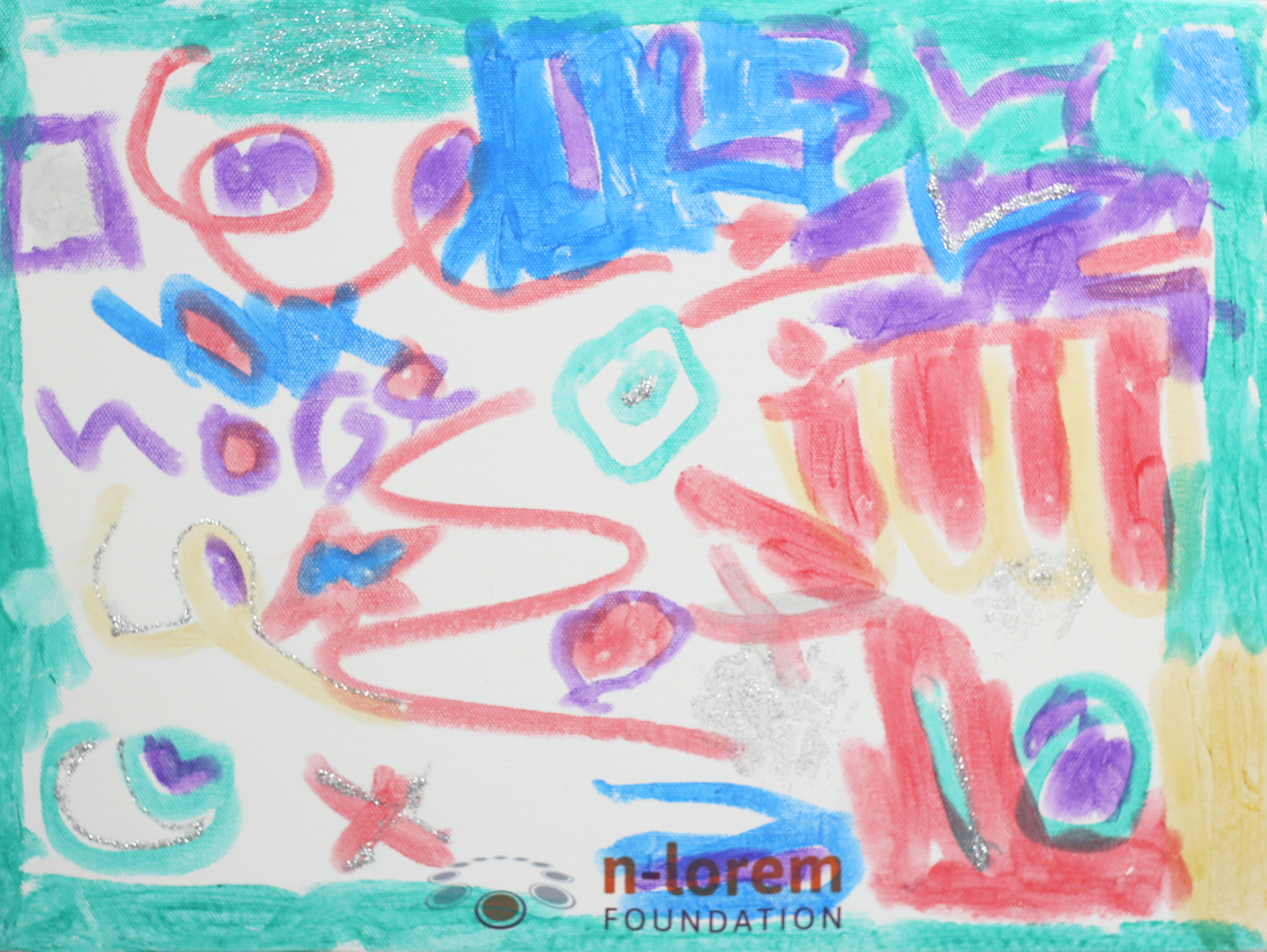Auctions
Please be aware: Upon placing a bid, your name will be public on the auction page. If you wish to remain anonymous within the public sphere, please name yourself “anonymous”.
Your bid will appear in the ‘bids placed’ section after a few minutes. Check your email (and spam folder) to confirm your bid has been placed, to monitor if you have been outbid, or for an auction winner notification.
Proceeds from auctions support n-Lorem and nano-rare patients.


Pyper - A Spell of Color
A Spell of Color
Program: ELP1
Pyper’s Story:
Pyper’s journey began in the NICU, where her care involved daily tests, scans, ultrasounds, and evaluations from multiple medical teams. She was quickly diagnosed with a genetic condition, Adrenal Insufficiency (AI), after it appeared on her newborn screening. However, this diagnosis didn’t explain her other persistent symptoms—unstable temperature regulation, low muscle tone, inconsolable crying (earning her the nickname “Pyps with the Pipes” from nurses), and most concerning of all, her difficulty feeding. Despite a wide range of suspected conditions, all additional tests came back negative. As our frustration mounted, her parents felt compelled to take matters into their own hands and Pyper’s father began his own research, presenting several potential diagnoses to the medical team—including Familial Dysautonomia (FD). At the time, doctors considered it too rare to warrant further testing. After 28 days in the NICU with no clear answers, her parents advocated to bring Pyper home. She was discharged with an NG tube in place and a long road ahead.
Within days of discharge, Pyper began feeding therapy, launching her family into an intensive search for the root cause of her medical challenges. After enduring six ICU hospitalizations due to pneumonia and upper respiratory infections. She was eventually diagnosed with silent aspiration, and due to treatment of this diagnosis, her infections reduced and she was accepted into an outpatient intensive feeding program at Phoenix Children’s Hospital. This program connected her family with a wide network of specialists.
Despite progress, the underlying cause of her symptoms remained unknown. With the ongoing support of her dedicated feeding occupational therapist, the family continued to search for answers. Along the way, they noticed subtle but unusual symptoms in addition to her feeding struggles: uncoordinated sneezing, sudden loss of balance, poor proprioception, sleep apnea, inability to cough, lack of tear production, absence of crying when injured, and episodes of excessive sweating. They explored every possible lead—tongue tie release, repairing a notch in her esophagus, and multiple scopes of her stomach and lungs—but none provided answers. After two years of consultations with 16 different specialists without a clear and concise diagnosis, they were referred to a genetic dermatologist due to Pyper’s unusual facial flushing. This was the first time a physician looked beyond their specialty and considered the full picture of Pyper’s medical history. Within 24 hours of that appointment, her family received a call: the physician strongly suspected Familial Dysautonomia and immediately ordered genetic testing.
One month later, the answer they had been searching for finally arrived—Pyper tested positive for Familial Dysautonomia (FD) due to a mutation in her ELP1 gene, making her the 712th person in the world to be diagnosed with this ultra-rare genetic condition. Even more uniquely, Pyper is the only known patient ever recorded to have both FD and Adrenal Insufficiency (AI). Within a week of receiving the results, they were on a plane to New York City for our first visit with the exceptional team at the NYU Dysautonomia Center, where she continues to receive expert, specialized care.
FD is a genetic disorder that affects the autonomic and sensory nervous systems, which control the body’s automatic functions. This means that many of the everyday processes most people take for granted—like regulating blood pressure, body temperature, and digestion—don’t function properly in individuals with FD.
Common features of FD include:
- Insensitivity to pain
- Unstable blood pressure and body temperature
- Absence of tears
- Poor growth
- Digestive and feeding difficulties, including the inability to suck or swallow (many individuals require feeding tubes)
- Respiratory, cardiovascular, orthopedic, and vision problems
- “Autonomic crises”—sudden episodes of severe nausea, vomiting, high blood pressure, rapid heart rate, fever, and excessive sweating
Despite the complexity of her diagnosis, Pyper faces each day with resilience, joy, and a bright spirit that inspires everyone around her. She approaches her therapies and doctor visits with eagerness and positivity. Today, Pyper continues to inspire everyone around her. Because FD affects her autonomic nervous system—including emotional regulation—she wears her heart on her sleeve, often showing her joy, love, and excitement without filter. She reminds her family daily to slow down and appreciate the small pleasures in life. Pyper’s favorite things include sushi dinners, spending time with animals (especially dogs and horses), and all things Harry Potter. Her light shines brightly, drawing people in—and leaving a lasting impression on everyone she meets.
| Bidder Name | Bid Price | When |
|---|---|---|
| Tom Lowe | $300.00 USD | 11 days ago |
| Tejal Parekh | $75.00 USD | 23 days ago |
| Amy Williford | $50.00 USD | 24 days ago |
